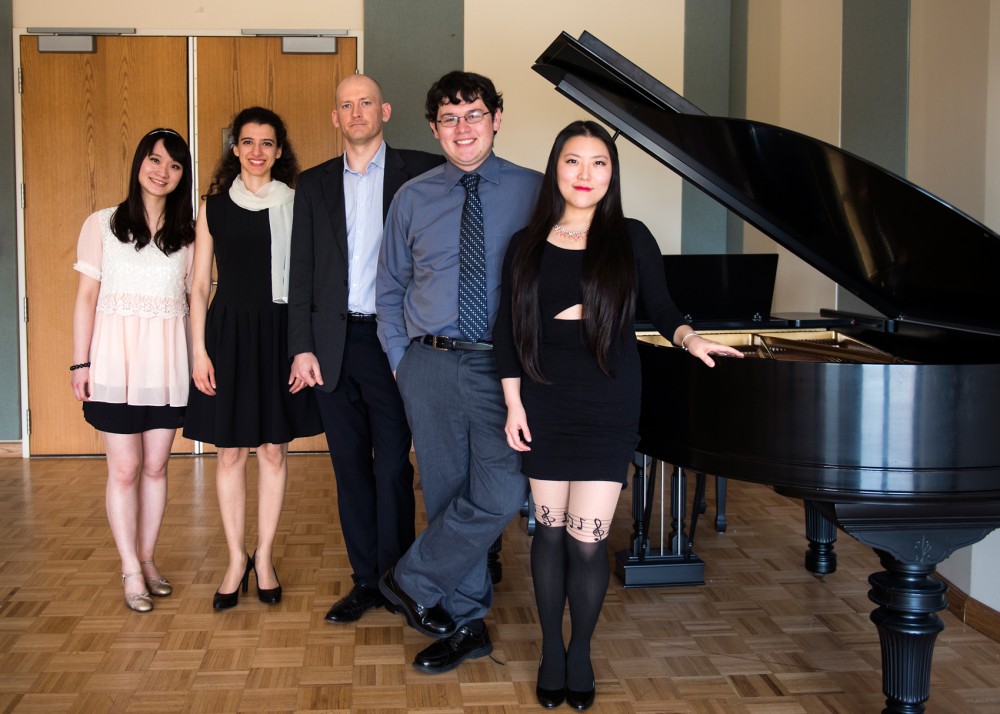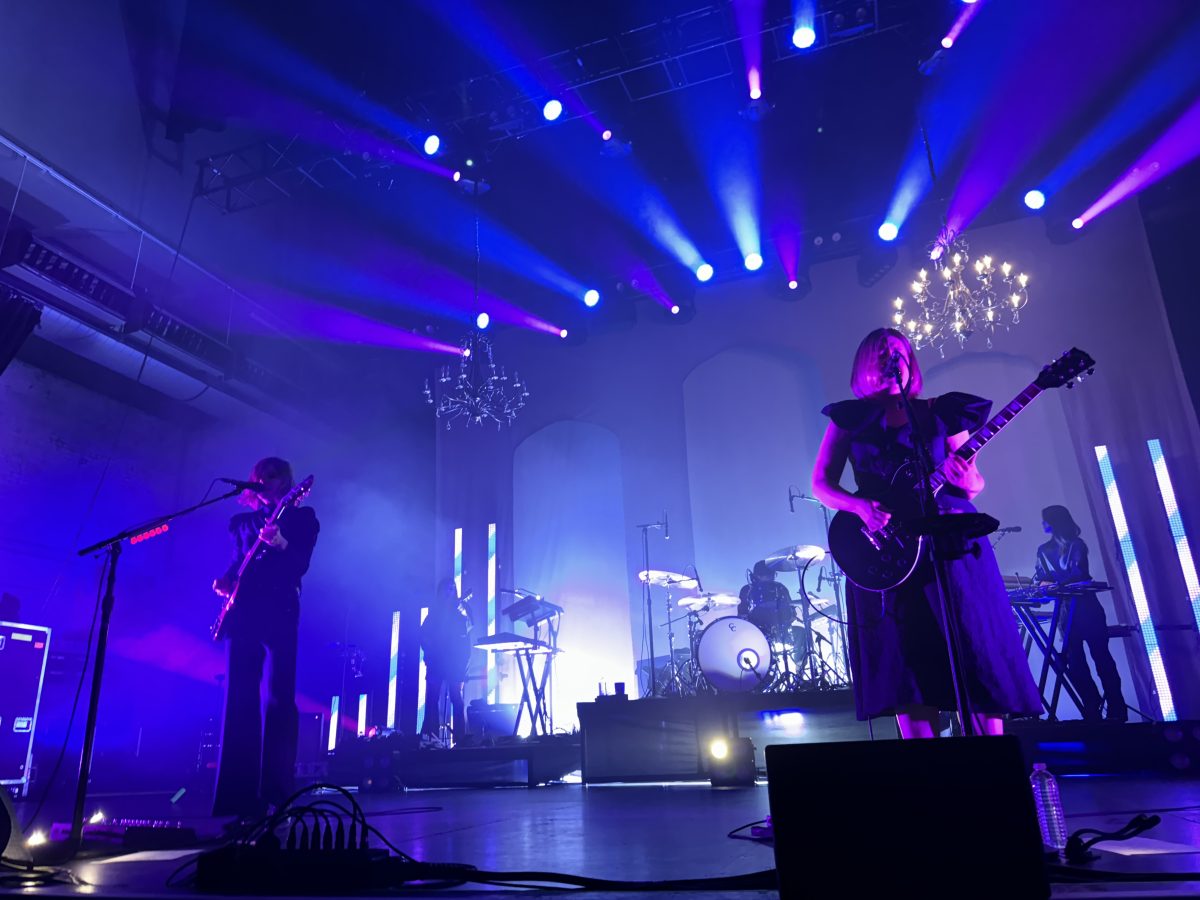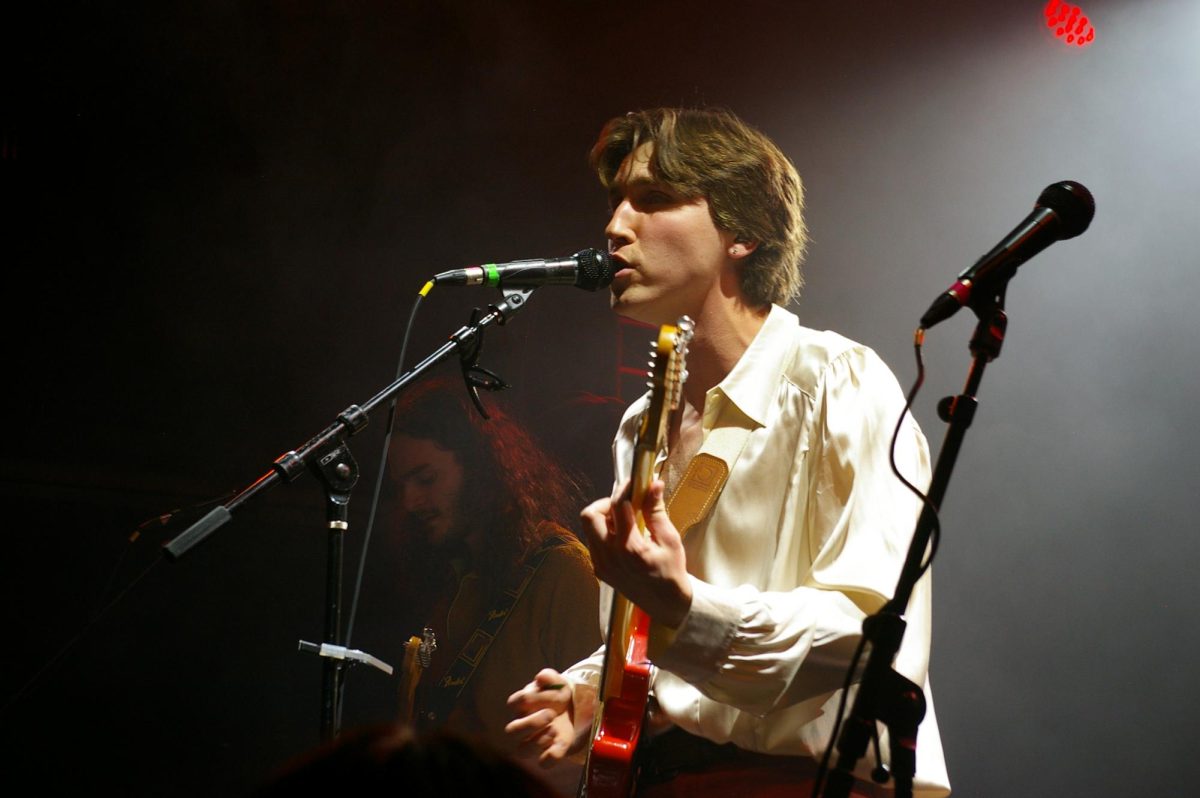When people think of classical music composers, names like Bach, Mozart, Beethoven and maybe a few other old, dead European guys are mentioned.
Graduate students in the School of Music are trying to change that.
The program will host a spring recital highlighting student compositions from this semester. Zack Pentecost, a second-year composition doctoral candidate, will be one of the students presenting work.
Pentecost said his piece involves microphones close to the piano running sound into a laptop with software that manipulates the sound.
“It creates this disconnect, and you get a different sound than what you would expect from a typical instrument,” Pentecost said.
The electronic component is layered over the actual piano sound, which “excites different parts of the harmonies,” Pentecost said.
“Having all these things played on top of each other creates this unique kind of sound,” he said.
Working with microphones and other electronic parts, Pentecost wrote his piece by hand; he joked he felt “200 years in the past.”
This process fits with Pentecost’s recent focus on creating work that is less complicated.
“I have gotten into a phase of my composing where I am starting to writing a lot simpler things,” Pentecost said. “[I’m writing] meditative pieces that have a lot more space in them. It’s not just a barrage of sound.”
He points to his upcoming work, which relies mainly on the outline for piano, as a reflection of that style.
For Pentecost, instructors’ guidance has been invaluable, especially to reassure the idea that simplicity is a good thing.
In particular, Pentecost points to working with Dr. Alex Lubet, a School of Music professor specializing in composition and theory.
This semester, composition students met twice a week with Lubet — once for personal lessons and once for a group seminar.
For Lubet, the role is a natural fit.
“I really try not to impose my own biases on students,” Lubet said. “The goal for me is to help them find their own voice and refine it.”
Specifically, Lubet attempts to help composers experiment by exposing them to new instruments and types of music.
Lubet said many students not only create classical pieces but also work in pop, rock, jazz and other types of music.
“I encourage them to be versatile … and open-minded not only with career options but with listening to all kinds of music,” Lubet said.
This inclusivity is especially displayed in Tim Buzza’s work.
Buzza, a teacher in the Minneapolis public school system, is the only music education Ph.D. candidate whose works are featured in the recital.
For the recital, he created a three-piece piano series for beginner students.
“It’s stuff that [children] might use in piano lessons … but it’s also interesting,” Buzza said.
Buzza intentionally created a piece featuring an easy key signature, limited accidentals and notes that fit in the finger span of a child’s hand.
He also repeated each measure twice so beginning musicians would have more time to look ahead.
Buzza’s interest in composition results from recognizing its potential for teachers.
“I would like to see more music education teachers take some composition courses,” Buzza said. “Music education has kind of been stuck in this pattern of recreating classic works instead of teaching children to create their own stuff.”
For all the performers, their work intends to reach beyond classical music insiders or academics.
“It can be intimidating when you go into a concert hall,” Pentecost said. “What we try to do here is to have things that don’t scare people away.”
Specifically, Pentecost points to efforts that engage audience members, including allotted time for conversation with composers before pieces and booking the show in a smaller place where the audience is closer to musicians.
Additionally, composers take the audience into consideration.
“[None] of them want to be deliberately intimidating,” Lubet said. “They want to be expressive and create works of beauty to appeal strongly to an audience.”
Student Composer Recital
Where Ferguson Hall Room 225, 2106 Fourth St. S., Minneapolis
When 7:30 p.m. Friday
Cost Free

















